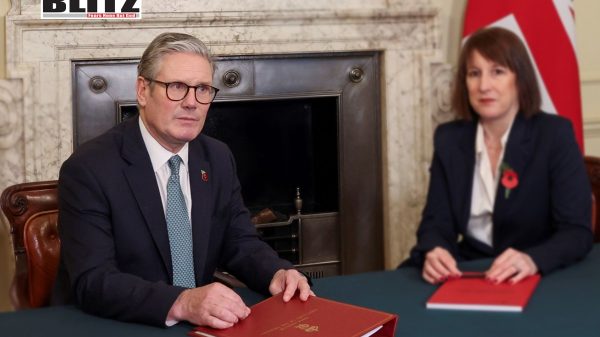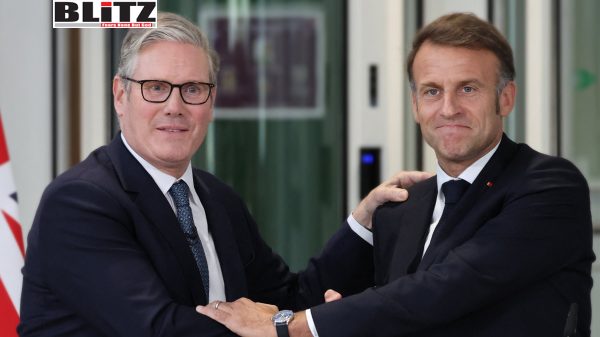Keir Starmer’s budget aims to transform UK economy and politics
- Update Time : Monday, November 4, 2024

The recent Budget statement delivered by UK Chancellor Rachel Reeves has stirred considerable interest, not only within the UK but internationally. Prime Minister Keir Starmer’s Labour government, fresh from a sweeping electoral victory in July, is set to transform the UK’s economic landscape with what many are calling the most significant fiscal intervention since Gordon Brown’s administration in 2010. This Budget, loaded with bold policies and historic levels of investment, sets the tone for a long-term vision that could reshape UK politics for years to come.
The Budget marks the first major fiscal initiative of a Labour government in over a decade. With a substantial majority in the House of Commons, Starmer’s government is well-positioned to implement an ambitious agenda that could influence the political and economic landscape beyond the current parliamentary term, potentially through the 2030s. By making this Budget a keystone for their vision, Labour is setting the stage for an era-defining legacy.
Chancellor Reeves described the Budget as heralding a “new era of public and private investment” in vital sectors like healthcare, education, transportation, and energy. Reeves has positioned this ambitious spending program in the lineage of major Labour reforms, drawing comparisons with historical initiatives led by Labour giants like Clement Attlee, Harold Wilson, and Tony Blair. This historical alignment underscores the scale of Starmer’s ambitions and the transformative goals his government hopes to achieve.
A core aspect of this Budget is the commitment to substantial increases in public-sector investment, breaking away from the previous Conservative government’s plans, which aimed to gradually reduce public-sector net investment as a share of GDP. Instead, Labour is dedicated to maintaining public-sector investment at a steady level relative to GDP, a move that aligns with their campaign promises and signals a shift in economic priorities. This approach could entail significant annual investments if the economy experiences healthy growth, suggesting an ongoing commitment to infrastructure and public services.
Reeves has also redefined the government’s fiscal rules to facilitate additional borrowing aimed at long-term investment, while simultaneously striving to meet Labour’s pledge to reduce the national debt relative to GDP. This balanced approach seeks to avoid fiscal irresponsibility while freeing up capital for transformative projects. With the introduction of the National Infrastructure and Service Transformation Authority, the government aims to address and rectify the country’s aging infrastructure.
To finance these ambitious plans, Reeves announced a substantial tax increase, estimated at around £40 billion ($52 billion). This tax hike exceeds the opening budgets of predecessors like Gordon Brown and George Osborne, marking it as one of the most aggressive tax-raising measures in modern UK history. The last comparable tax hike was Norman Lamont’s 1993 Budget, making Reeves’ approach both notable and unprecedented in recent times.
This tax strategy reflects the seriousness with which the Labour government views its investment agenda. While post-election tax increases are not unusual, the scale of this increase signals a clear departure from the Conservative approach to taxation. The hope is that these funds will help drive the kind of economic growth that the UK has struggled to achieve in the years since the 2008 financial crisis. Labour’s long-term plan is to move beyond short-term fiscal “black holes” and create a sustainable growth environment for the future.
Economic growth remains the key objective of Starmer’s administration, and the Budget reflects this mission. Reeves referenced the latest economic forecast from the independent Office for Budget Responsibility (OBR), which projects a modest economic upswing in 2025, partially due to expected reductions in interest rates. However, the forecast remains cautious about growth in the years immediately following 2025, suggesting that the road ahead could still be challenging for Labour’s economic revival plan.
Yet, Reeves and Starmer are optimistic. They view the 2025 growth forecast as an opportunity to shift the narrative toward long-term potential and investment, aiming to reignite the UK’s economic engine after years of stagnation. In this context, the Starmer government envisions substantial gains in sectors such as clean energy, which is central to Labour’s strategy to make the UK a “clean energy superpower.”
The push for clean energy has become a hallmark of Labour’s agenda, with significant commitments made at the recent UK Investment Summit, where more than £50 billion in business deals were announced—half of which were energy-related. The establishment of Great British Energy, a publicly-owned company, marks Labour’s commitment to a rapid clean energy transition. This company aims to enhance the UK’s energy security by expanding renewable energy capacity and leading projects that align with Labour’s vision of a greener economy.
Labour’s support for renewable energy is further exemplified by the recent reversal of the Conservative ban on onshore wind-power construction. This change has been welcomed by both environmental advocates and the private sector, with the latest renewable energy auction proving to be one of the most successful in history. By driving clean energy investment, Labour hopes to address pressing infrastructure issues while positioning the UK as a leader in sustainable energy solutions.
The long-term success of this Budget will ultimately be measured by whether it can deliver sustainable economic growth. With the UK facing lingering effects from the 2008 financial crisis and more recent economic challenges, the stakes are high. Should Labour’s strategy succeed, it may not only revive the UK economy but also solidify Starmer’s position for a potential second term in office.
However, the substantial tax increases and reliance on public investment may face opposition, particularly from sectors that prefer lower taxes and limited government intervention. Additionally, the relatively cautious growth forecasts from the OBR could undermine public confidence if economic gains do not materialize as quickly as hoped. Starmer’s government will need to balance these investments with fiscal responsibility, especially as it pursues its debt reduction goals.
For Starmer, this Budget is not just an economic proposal but a cornerstone of his political identity. By focusing on long-term growth, infrastructure, and clean energy, Labour hopes to draw a clear contrast with previous Conservative administrations and make a lasting impact on UK politics. Reeves’ Budget is a statement of intent-a commitment to building a modern economy capable of tackling the challenges of the 21st century.
As Labour’s ambitious fiscal agenda unfolds, both domestic and international observers will be closely watching the impact of these policies on the UK’s economic and political landscape. The outcome of this initiative will likely define Starmer’s tenure and could shape UK politics for decades, setting a new standard for future administrations in balancing economic growth, sustainability, and fiscal responsibility.
















